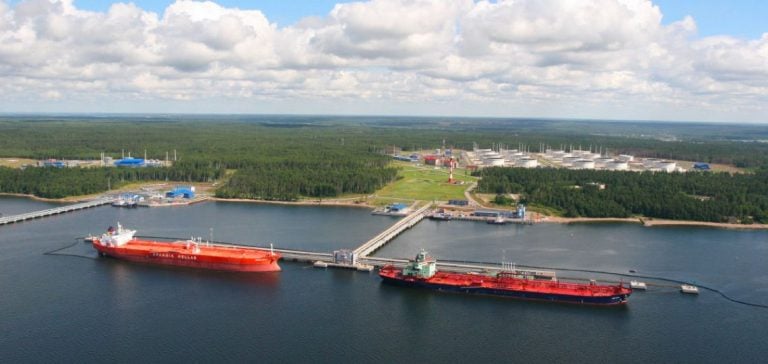Russia’s oil exports could see an increase in October, according to industry sources.
As domestic refineries emerge from a period of intense maintenance, their processing capacity is unlikely to increase significantly.
Western ports, notably Primorsk, Ust-Luga and Novorossiisk, are at the center of this dynamic, with forecasts suggesting an increase in loadings despite initial expectations of a decline.
Industry sources indicate that several refineries will complete their maintenance work next month, but other facilities will reduce production to compensate for shutdowns in the country in previous months.
This situation means that overall throughput at Russian refineries will remain stable at around 5 million barrels per day, similar to September.
As a result, more oil will be available for export.
Export prospects
An industry insider said,
“I expect a slight increase in Russia’s oil exports in October. I doubt that all repairs will be completed in time,”
underlining the uncertainties surrounding the resumption of refinery operations.
Indeed, some 3.9 million tonnes of refining capacity will be offline this month, representing a 34% increase on August.
This situation could create an imbalance between domestic supply and export needs.
The Russian authorities have not yet published provisional export volumes for the Baltic and Black Sea ports for October.
However, September exports are expected to rise by 4.5% on August, reaching 2.04 million barrels per day, due to the addition of cargoes last week.
This trend suggests a willingness to maintain competitive export levels despite domestic challenges.
Impact on the global market
The potential increase in Russian exports could have repercussions on the global oil market, particularly in a context where prices are already influenced by geopolitical and economic factors.
Traders are keeping a close eye on these developments, as an increased supply of Russian oil could exert downward pressure on prices, especially if other producers, such as those in OPEC, maintain restricted production levels.
Fluctuations in Russian exports are also linked to the dynamics of global demand.
While some regions, notably Asia, continue to show sustained interest in Russian oil, other markets may adopt a more cautious approach due to sanctions and environmental concerns.
This duality in demand could influence Russia’s export strategies in the short and medium term.
Consequences for energy policy
The current state of Russian oil exports raises questions about the country’s energy policy.
With declining refining capacity and increasing dependence on exports, Russia may have to reassess its strategic priorities.
Investment in refining infrastructure and decarbonization technologies could become crucial to maintaining competitiveness on the global market.
Industry players also need to consider the implications of these changes for international trade relations.
Russia’s ability to adapt its exports to fluctuations in global demand could play a decisive role in its position on the energy market.
Companies must therefore remain vigilant and ready to adjust their strategies in line with changes in the global energy landscape.
Recent developments concerning Russian oil exports illustrate the complexity and interconnectedness of energy markets.
As Russia navigates between the need to maintain its exports and internal challenges linked to its refining capacities, industry players need to analyze these dynamics to anticipate future trends.
Adaptability and responsiveness to market changes will be essential for companies operating in this constantly evolving sector.






















